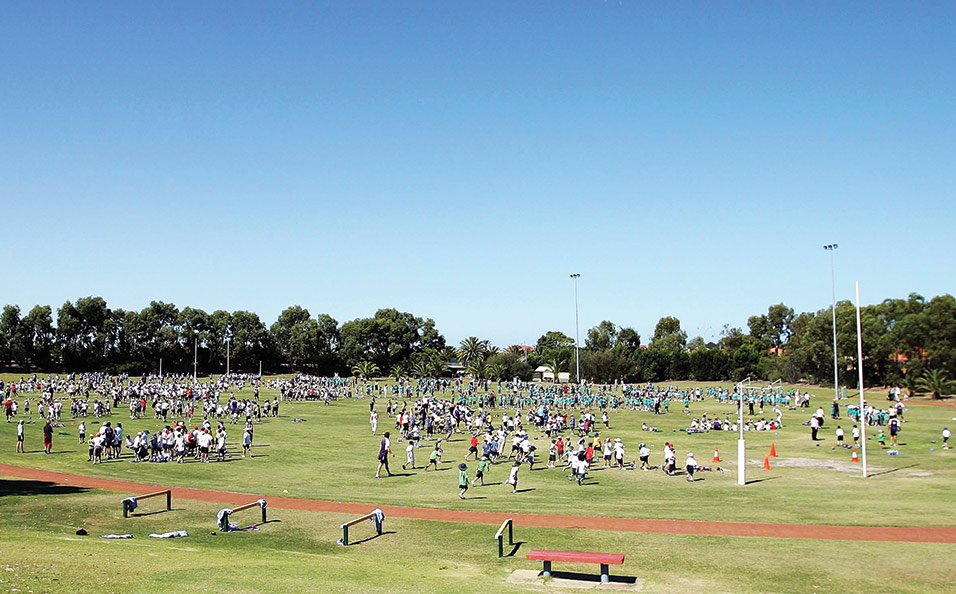I TOOK a trip recently. Not to some exotic Asian or European destination, but back to the place of my youth: a nondescript part of western New South Wales where the kangaroo population outnumbers humans by 1000:1.
Back then I played footy. And ‘footy’ was rugby league. League was like religion; the tie that bound a group of disparate, isolated towns together. Church may have been on Sunday, but the masses, such as they were, came together on Saturday afternoon when the countryside converged on the footy oval to claim regional bragging rights.
On the drive into town, I took a turn at the oval to reminisce, only to be greeted by what might at first have been an apparition. Like a moustache painted on the Mona Lisa, four AFL posts stood where my beloved rugby league crossbar once held pride of place. Such a change was almost incomprehensible. Back in the day, AFL wasn’t even an afterthought; a game more often than not the subject of snide asides that generally questioned the masculinity of its competitors. It wasn’t played in school, or talked about in the playground, or even mentioned in the news. It was, for all intents and purposes, non-existent.
My interest piqued, I kept an eye out for signs of life for rugby league on the return drive east. There were few. Most of the grounds I passed in these small NSW towns had AFL posts. In the space of a couple of decades, traces of rugby league in this former heartland had been largely erased.
My first reaction was surprise and sadness, but that quickly changed to admiration as I began to think about how brilliantly the AFL had planned, and executed their expansion strategy. Whilst the NRL buried its head in the sand and put such remote areas in its ‘too hard’ basket, the AFL saw opportunity. From little things, big things grow. AFL’s inexorable march across the state is converging from the east, and west.

What is most apparent is they have done this by first establishing a unified, consolidated base, with a singular vision for the sport. They recognised that factors like on-field violence limited growth and participation, and legislated against it. They worked to make the game quicker, more athletic, and as a result more watchable to a wider audience. The subsequent record TV rights deals are recognition of the fact that their strategy has worked.
The example set is a blueprint for most sports in this country, but most particularly golf. Golf’s fragmented, overly bureaucratic structure stands in stark contrast to that of the AFL. With the professional and amateur bodies autonomous, and driving individual agendas, we have a situation where the message about the game is confused. That’s not to mention the significant duplication of resources with multiple organisations needing to be funded to do essentially the same job.
And then there are the privately funded junior organisations, and state bodies too, all pushing their own barrow. Golf appears to stand at a crossroads, with many questions about the efficacy of the business models of member-based clubs and suppliers to the game remaining unanswered. To think that these answers are going to be found under the present management structure of our game requires a fertile imagination.
This is not a story about footy. It’s a story about the intersection of sport and business, about the recognition of possibility and understanding best practice. And it’s a story about the future of golf, rather than the past. Our sport can never truly go forward from such a fragmented base. Unable or unwilling to change, rugby league has begun vacating its tenancy in many of its former strongholds, with the void left behind being quickly filled by a smart, forward thinking competitor with both a cohesive corporate structure and a singular vision.
At some point in the future, league’s epitaph may well be intransigence. If written at the same time, what will be that of golf?



